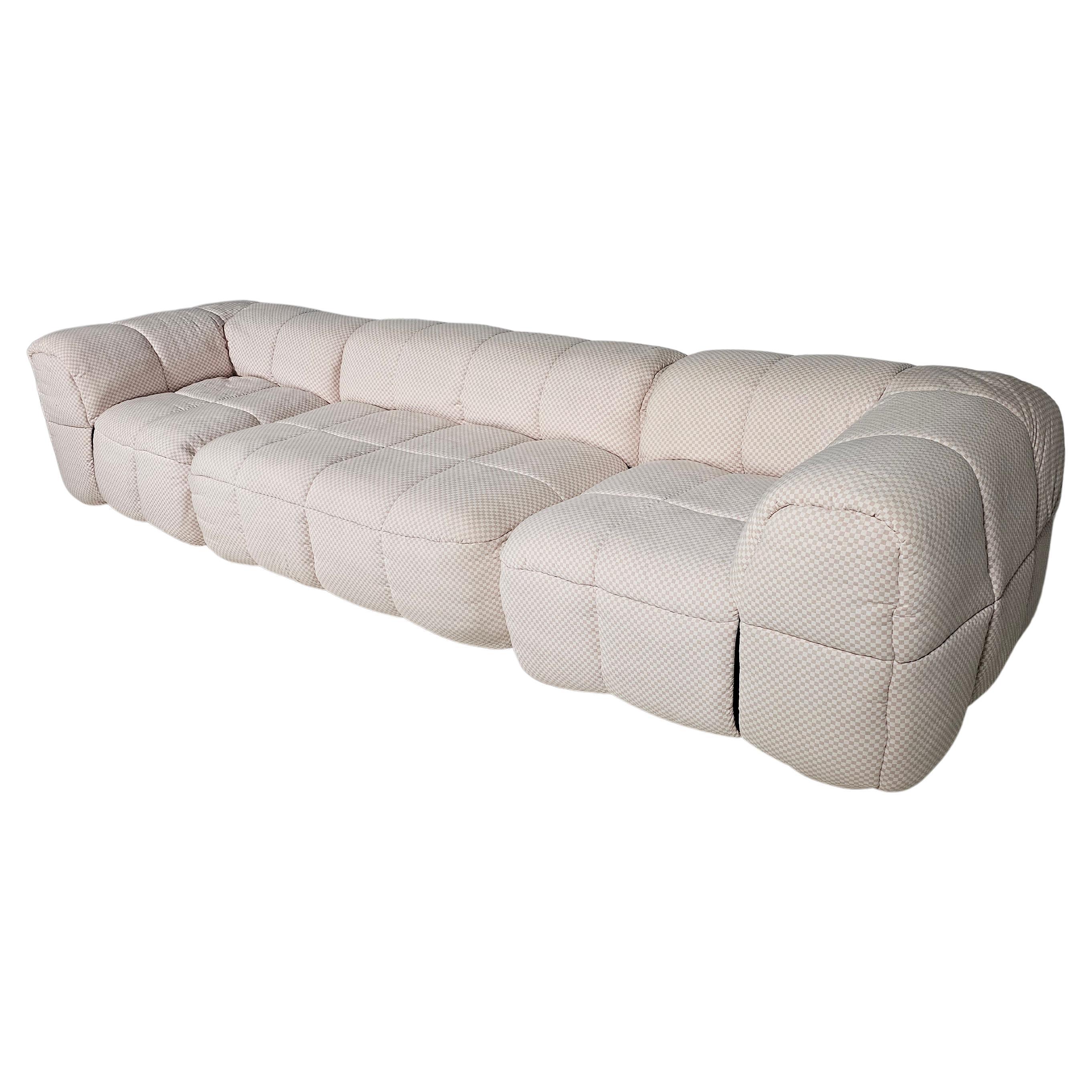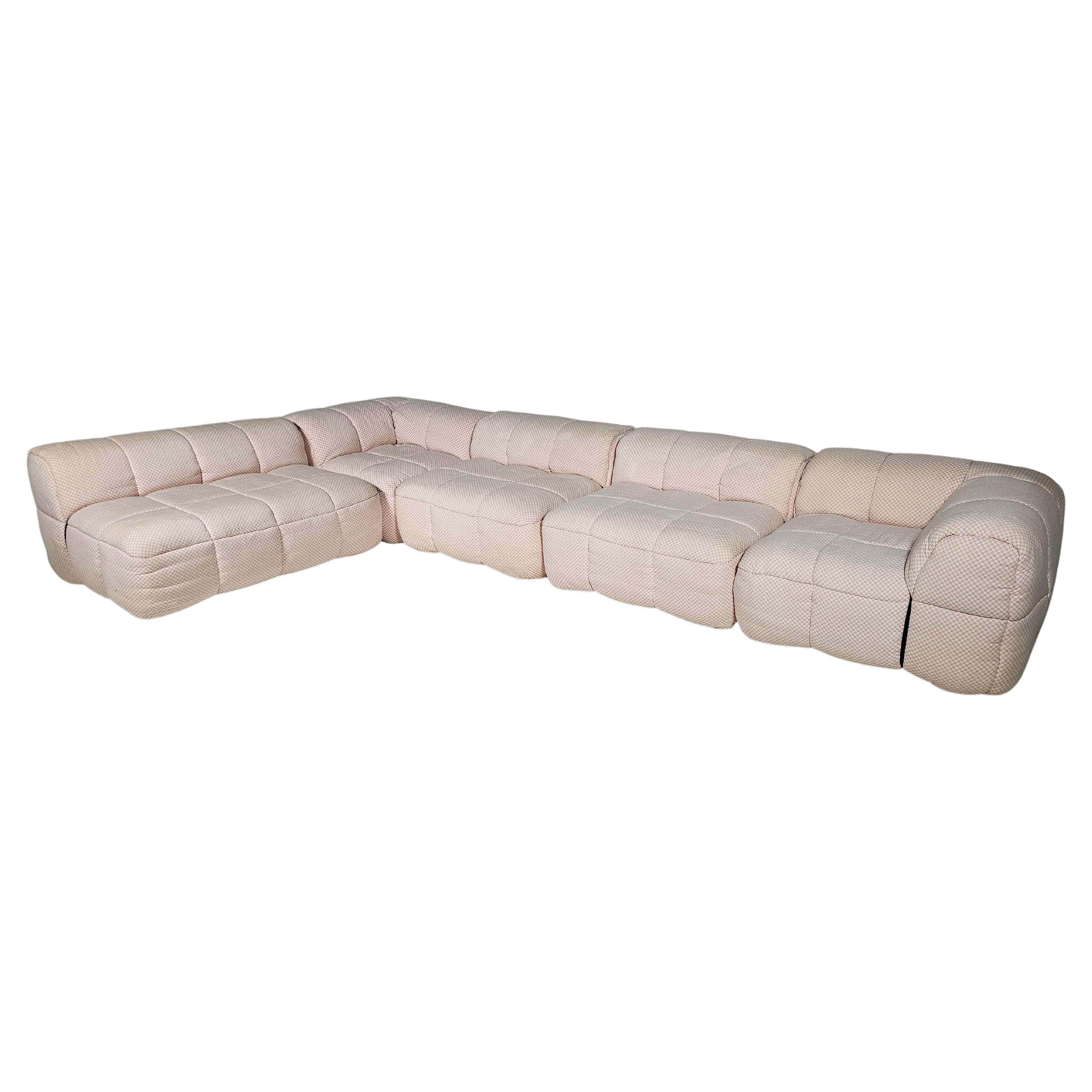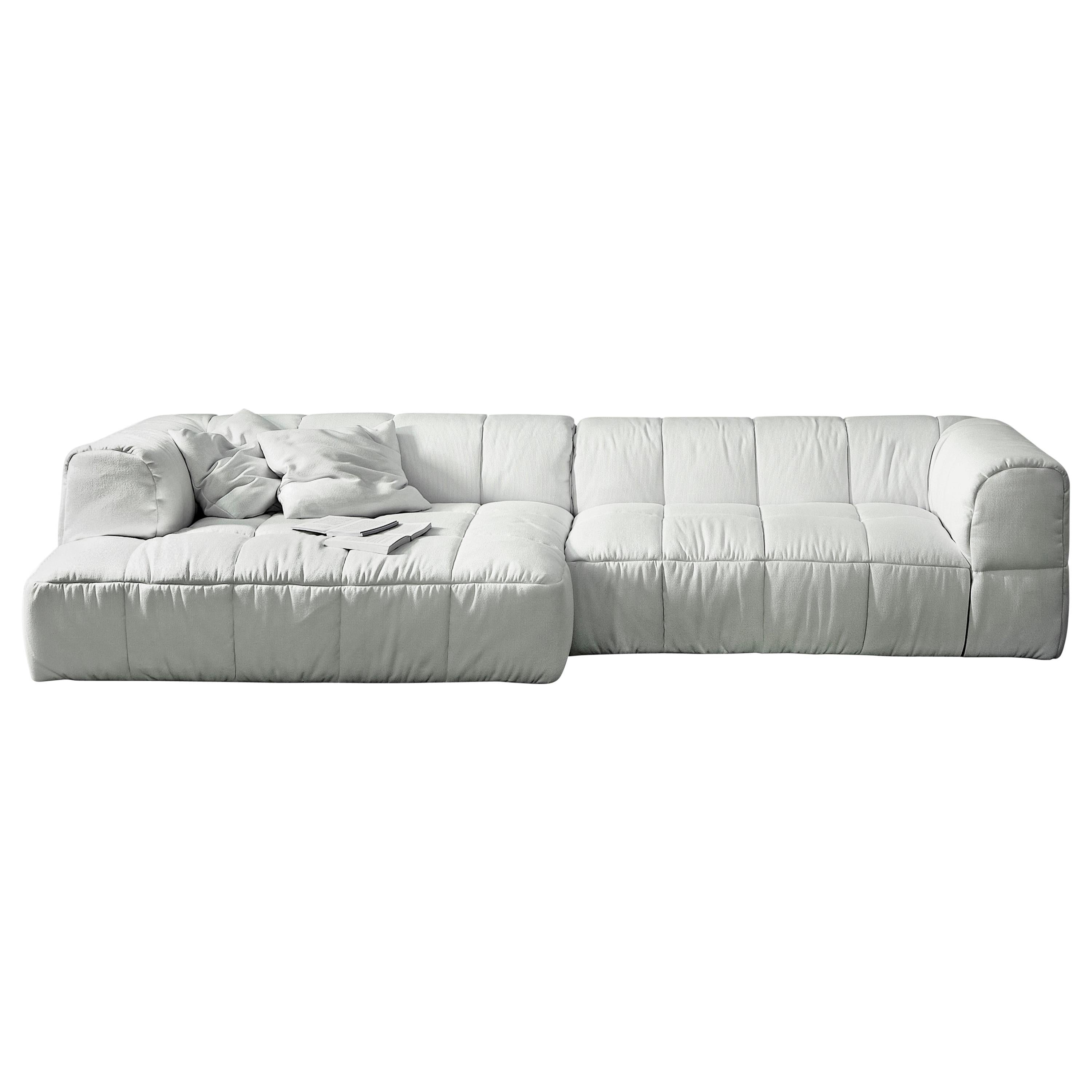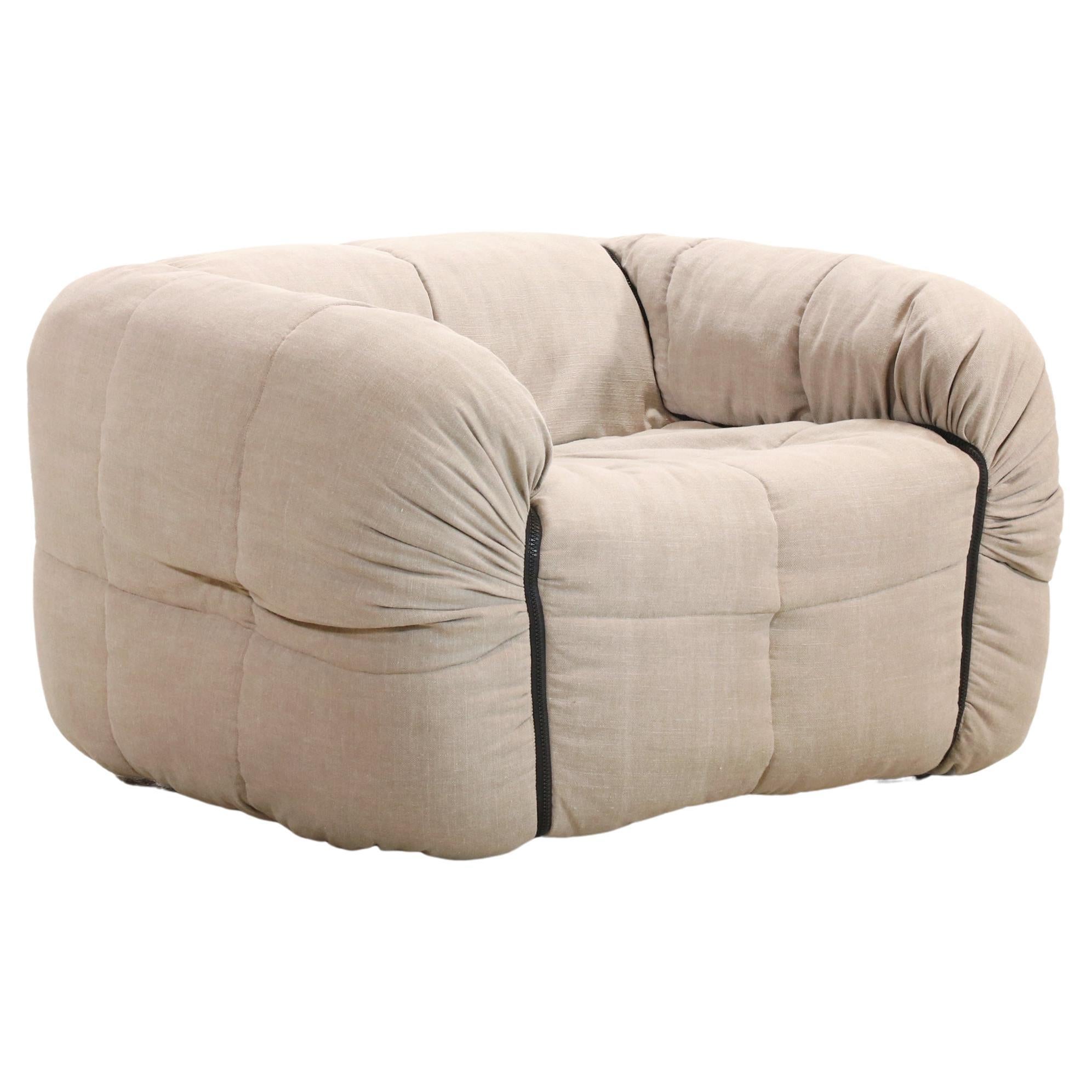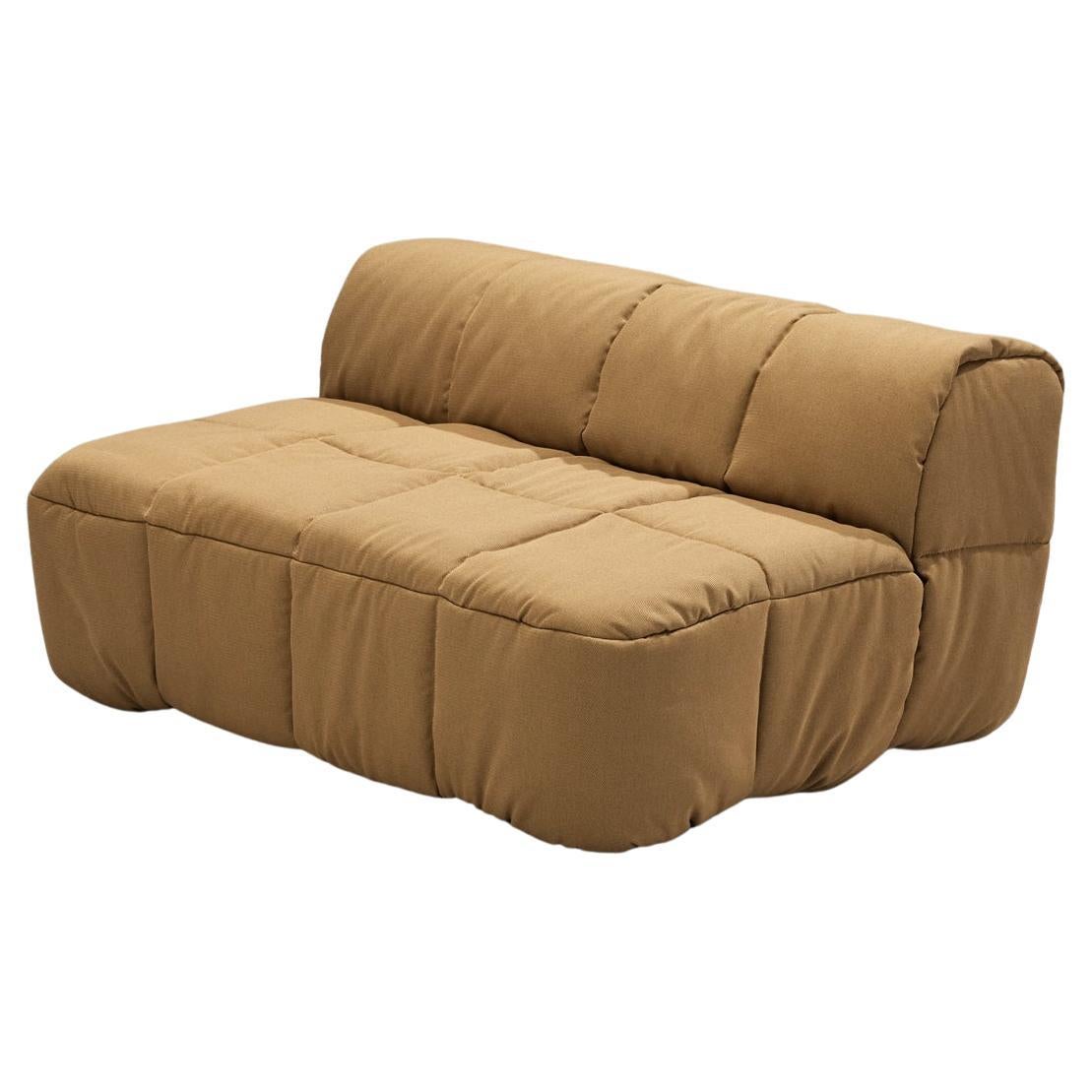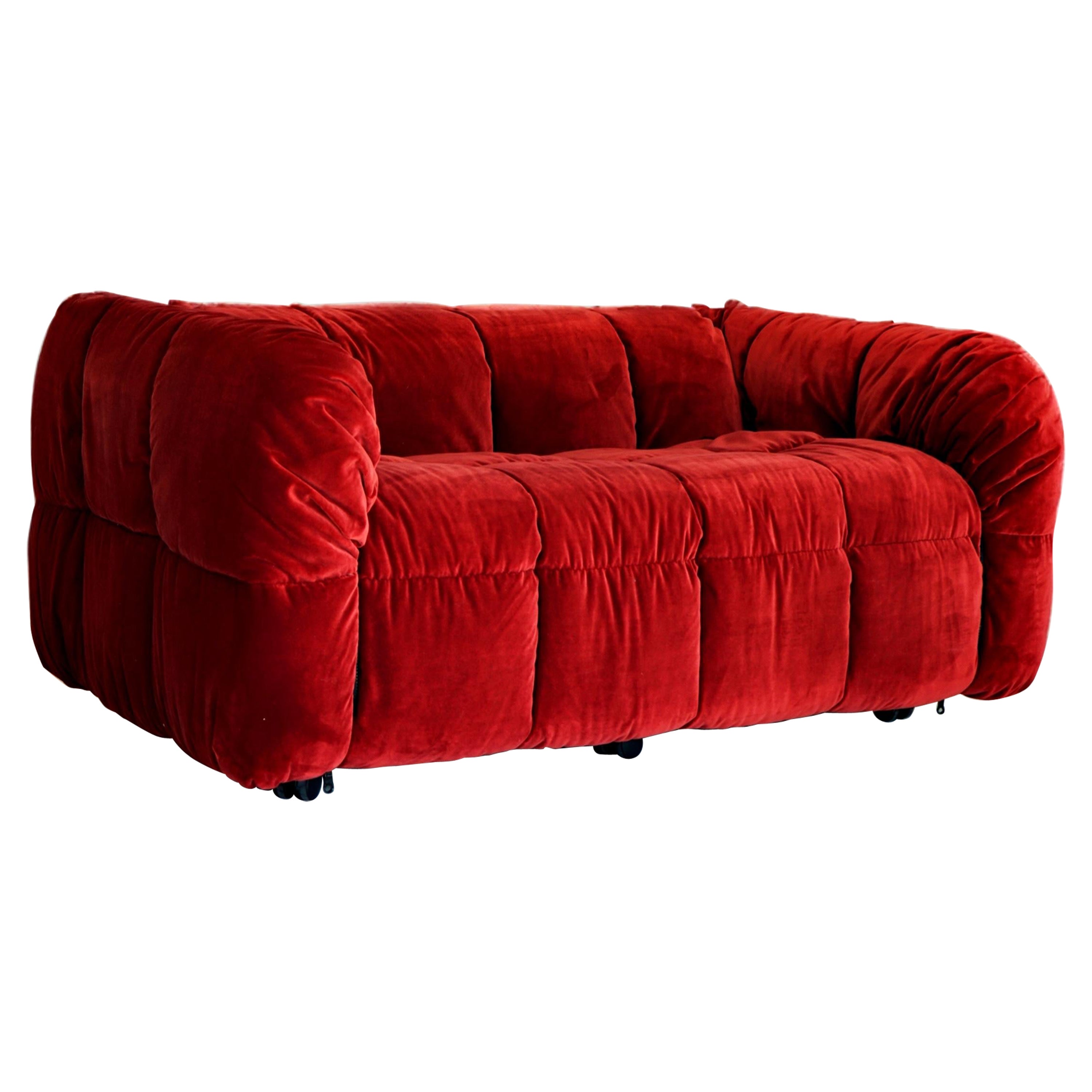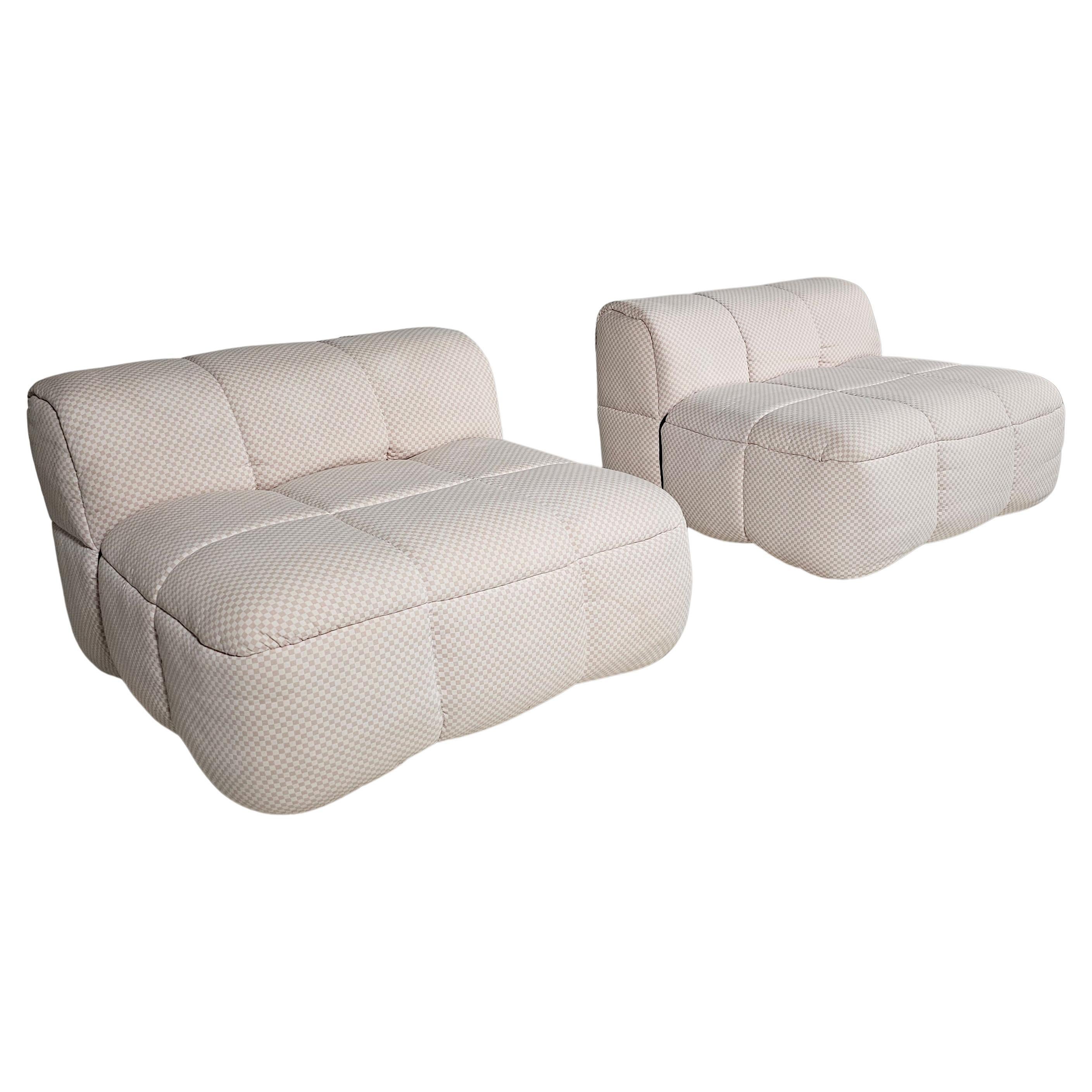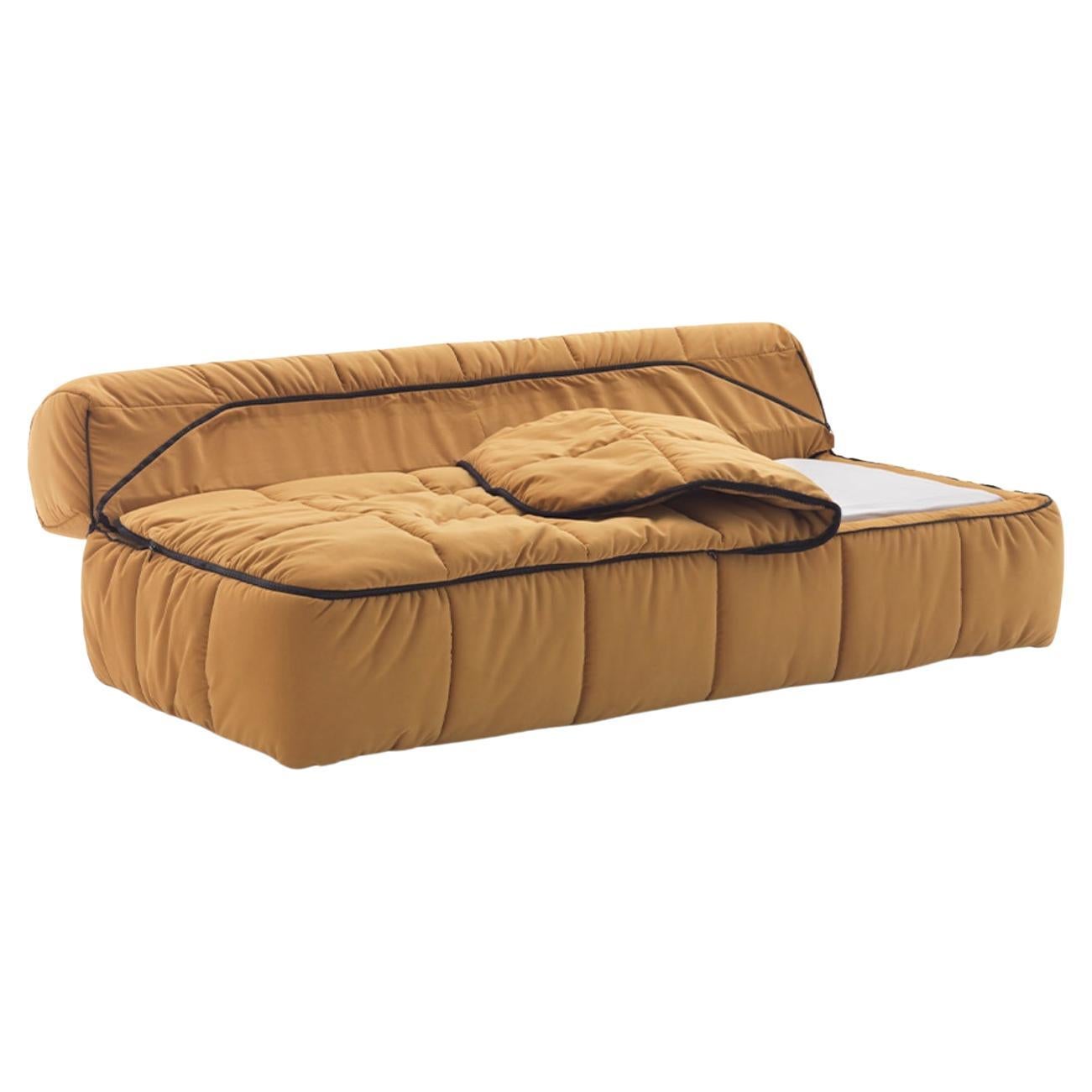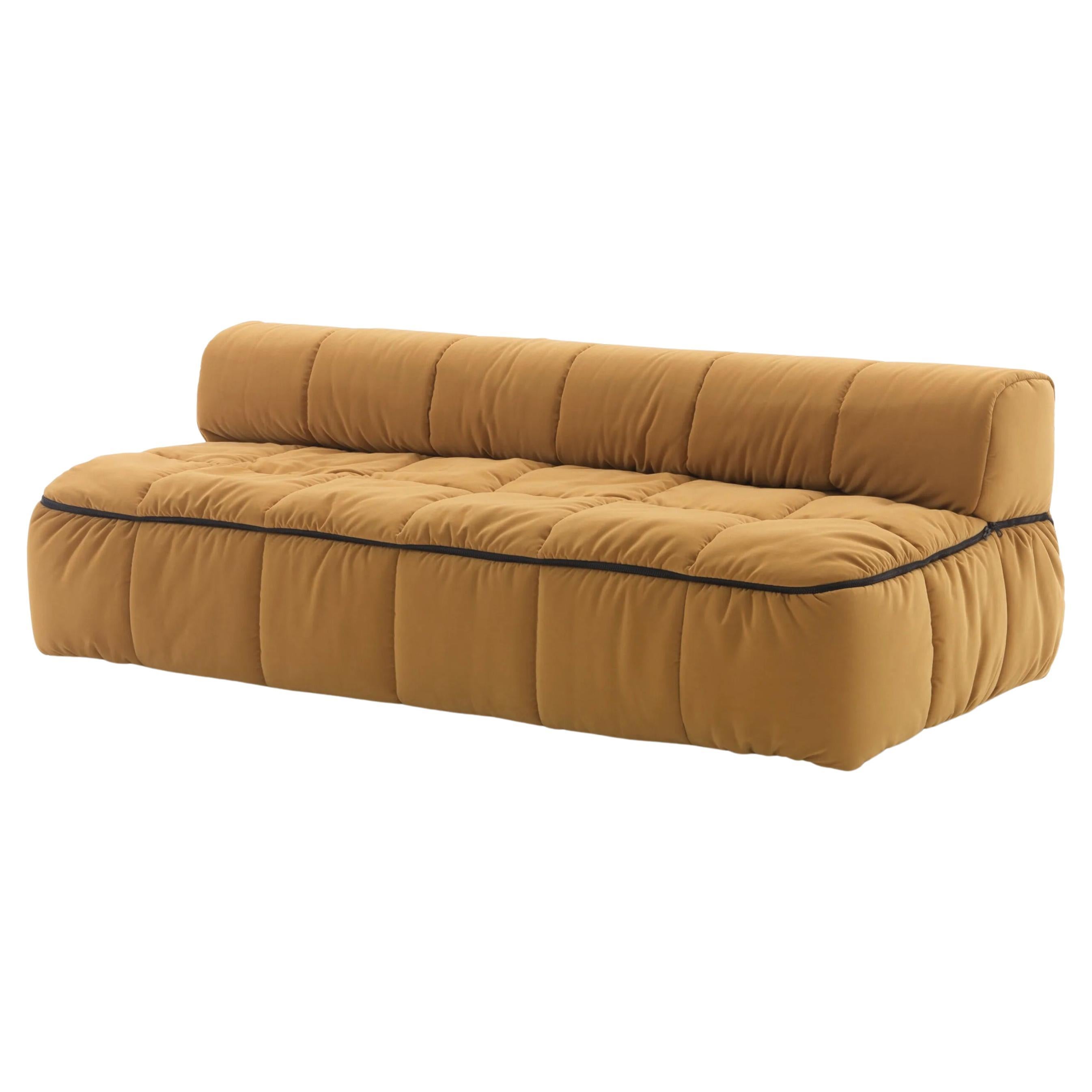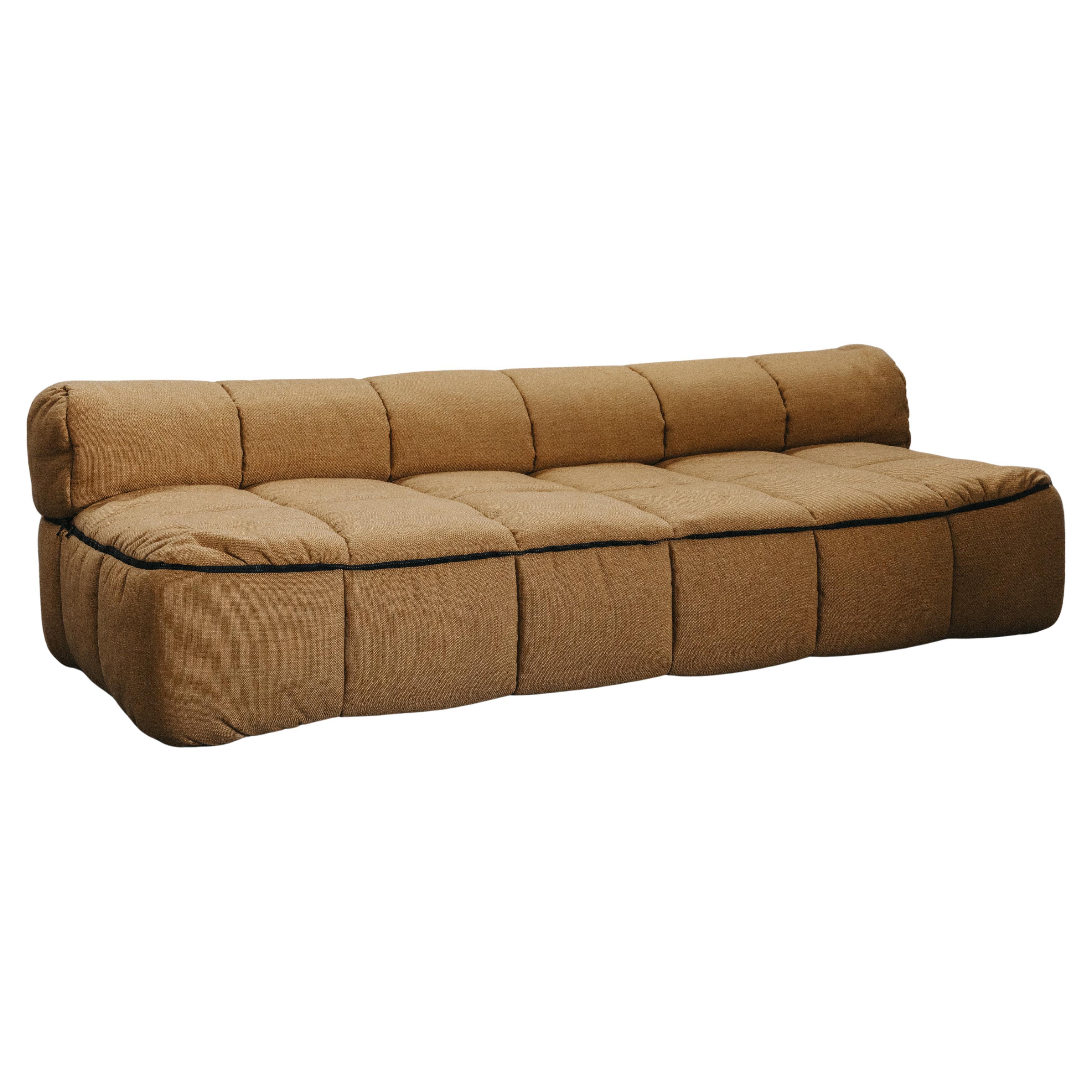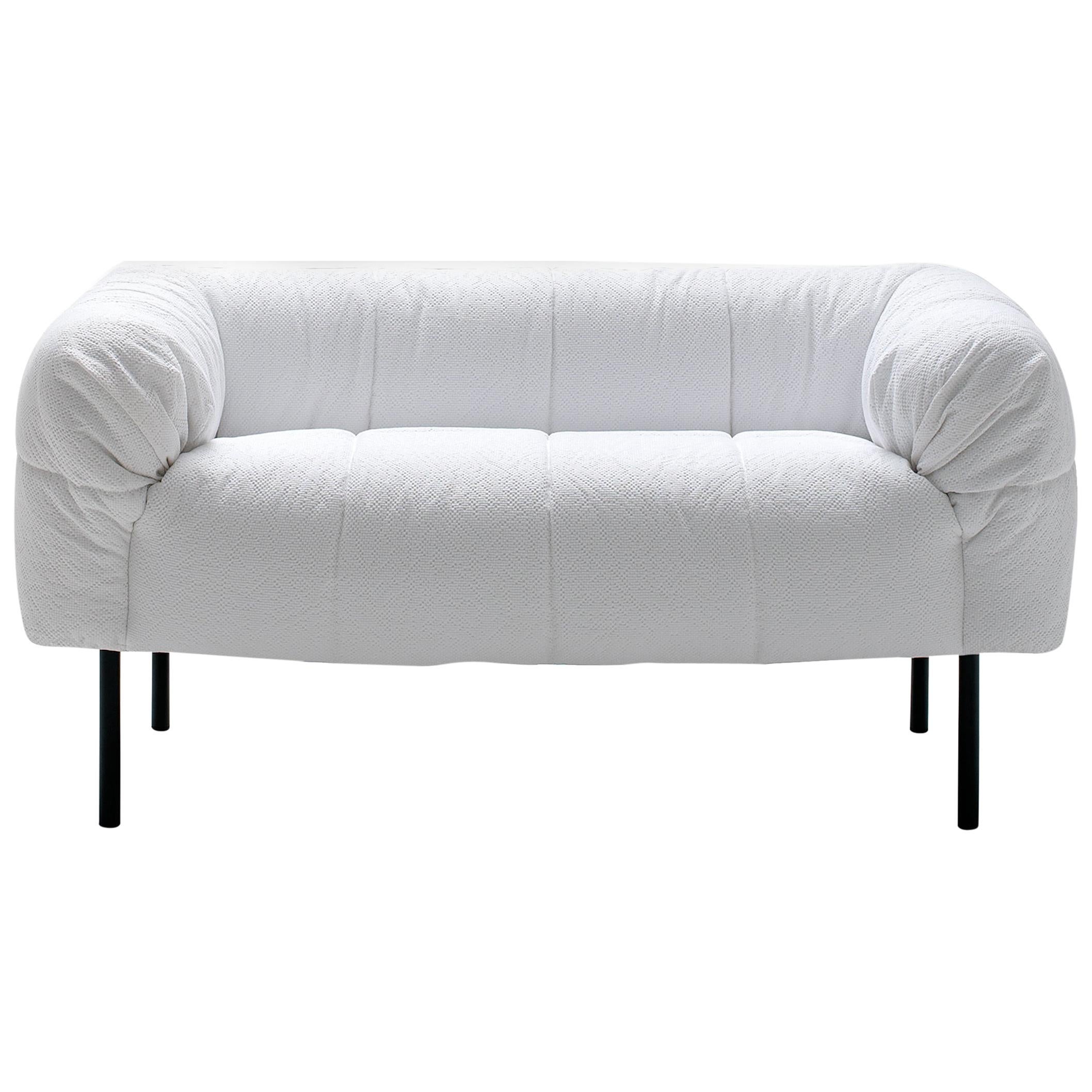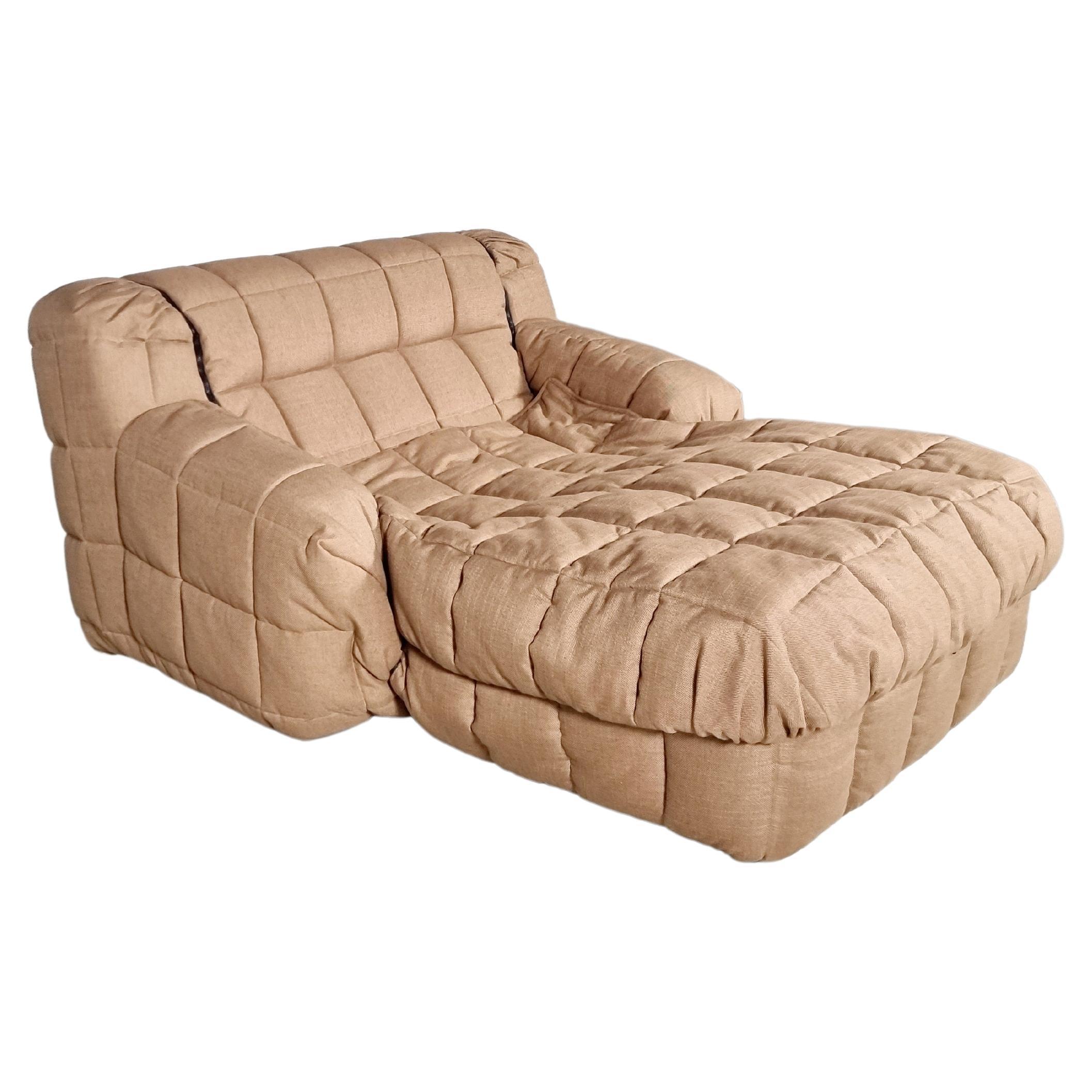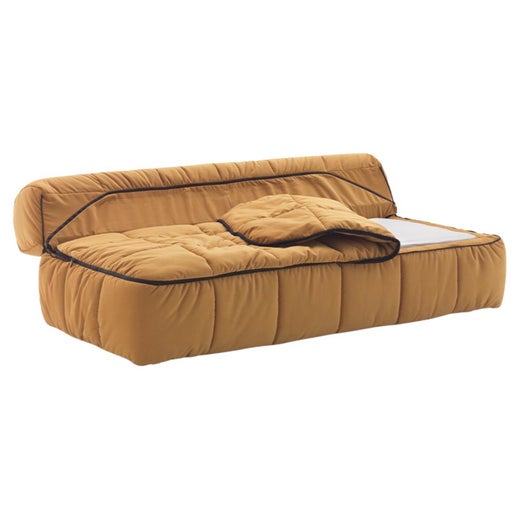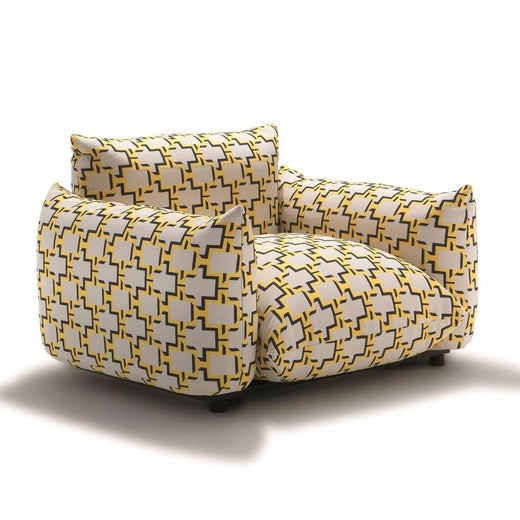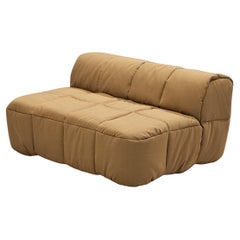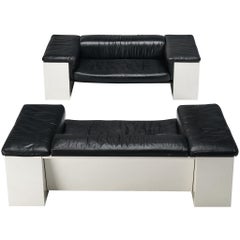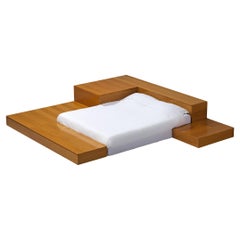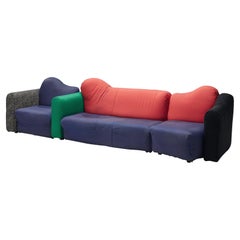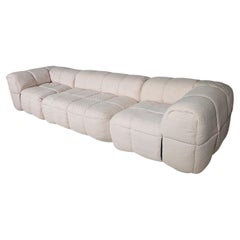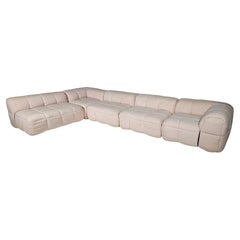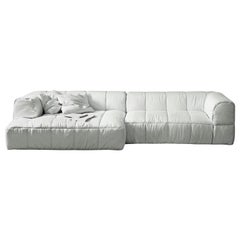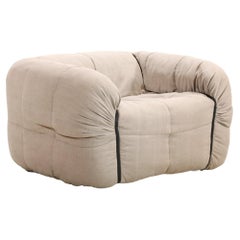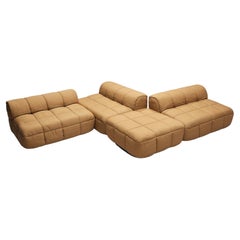
Cini Boeri for Arflex Modular 'Strips' Three Elements Sofa with Ottoman
View Similar Items
Cini Boeri for Arflex Modular 'Strips' Three Elements Sofa with Ottoman
About the Item
- Creator:Arflex (Manufacturer),Cini Boeri (Designer)
- Dimensions:Height: 24.81 in (63 cm)Width: 49.22 in (125 cm)Depth: 37.41 in (95 cm)Seat Height: 14.57 in (37 cm)
- Sold As:Set of 4
- Style:Post-Modern (Of the Period)
- Materials and Techniques:
- Place of Origin:
- Period:
- Date of Manufacture:1976
- Condition:Wear consistent with age and use. Every item Morentz offers is checked by our team of 30 craftspeople in our in-house workshop. Special restoration or reupholstery requests can be done. Check ‘About the item’ or ask our design specialists for detailed information on the condition.
- Seller Location:Waalwijk, NL
- Reference Number:Seller: 50110716 + 501107171stDibs: LU933136068102
Cini Boeri
Had Cini Boeri been a man, the Milanese architect and furniture designer, who died in 2020 at age 96, might be regarded today on par with such visionaries of the mid-20th century as Gio Ponti or Marco Zanuso. She worked with both. Although she’s well known and deeply respected in Italy, her renown elsewhere has been more akin to a cult following.
“I admire the work she did across architecture, interiors and furniture,” designer Faye Toogood says of Boeri’s impact. “She practiced architecture during a time when it was considered that women were too fragile to work outside.”
Boeri was one of very few women of her era to graduate from Milan Polytechnic with an architecture degree, which she did in 1951. Her illustrious career hinged on the strict economy of her designs and limited palette of materials. For example, her innovative 1971 Serpentone sofa for Arflex was crafted from just one material, polyurethane foam, and sold by the meter. Her ingenious 1987 Ghost chair for Fiam was cut from a single sheet of thick glass.
But in Boeri’s earlier days, her pieces displayed a more youthful exuberance. The circa 1968 Cubotto cabinet, produced in small numbers by Arflex, is an elegantly irregular arrangement of eight drawers of varying dimensions. The wooden cube, two feet square, was finished in laminate — in vivid orange, blue, sand or white — with color-coordinated casters and handles of black-enameled brass. Its design reflects a Space Age interest in flexible, space-saving, multiuse furnishings.
“It’s a very clean piece of design,” says Kaisha Davierwalla, owner and founder of Vaspaar Italy. “Even with its strong, square lines, somehow the vibrant colors and asymmetry have the feel of a feminine touch.”
Find vintage Cini Boeri seating, lighting and tables on 1stDibs.
Arflex
From its unorthodox beginnings, Italian manufacturer Arflex grew into one of the leaders of 20th-century furniture design. Its furniture came to be known for its integration of new materials and bold appeal, and today a variety of vintage Arflex chairs, sofas and tables are emblems of mid-century modernism.
Arflex was established in Milan in 1947 by Pirelli employees Carlo Barassi, Pio Reggiani, Renato Teani and Aldo Bai. Barassi, a Milan Polytechnic graduate and visionary engineer at the Italian tire manufacturer, explored innovative technology and new uses for synthetic materials in domestic products (for Kartell, he codeveloped a ski rack for automobiles). The four founders partnered with a young architect named Marco Zanuso, who also desired to create furniture that featured an application of novel materials such as elastic tape and polyurethane foam.
One of Arflex’s inaugural pieces was Zanuso’s Lady armchair, a seat made of polyurethane foam that was manufactured in pieces and assembled at the very end of the production process. It won a gold medal at the 1951 Milan Triennale. A couple of years later, Arflex collaborated with Studio BBPR to create the office-chic Elettra and Neptunia chairs. The flourishing furniture company quickly established a reputation for compelling products and attracting and working with up-and-coming designers such as Roberto Menghi, who created Hall, a luxurious line of seating that would earn the Compasso d’Oro – Honorable Mention in 1959.
In the 1960s, Arflex continued to welcome the use of new and cutting-edge materials. Popular designs from this decade include Carlo Bartoli's fiberglass and polyester resin Gaia lounge chair and Cini Boer’s Bobo Relax lounger, one of history’s first seating pieces made of polyurethane foam (it has no internal frame). Boer, a pioneer of furniture design in Italy, also created the Strips sofa for the brand in 1972. Part of a plush modular seating system, the Strips sofa became an Arflex icon and was awarded the Compasso d'Oro in 1979.
Arflex continues to work with innovative designers to this day. Among their more recent collaborations is with Swedish design studio Claesson Koivisto Rune. The company's legendary creations are also on display at museums worldwide. The Lady chair, for example, is in the permanent collection of the Museum of Modern Art in New York City.
On 1stDibs, you can find a collection of vintage Arflex lounge chairs, armchairs, coffee tables and other furniture.
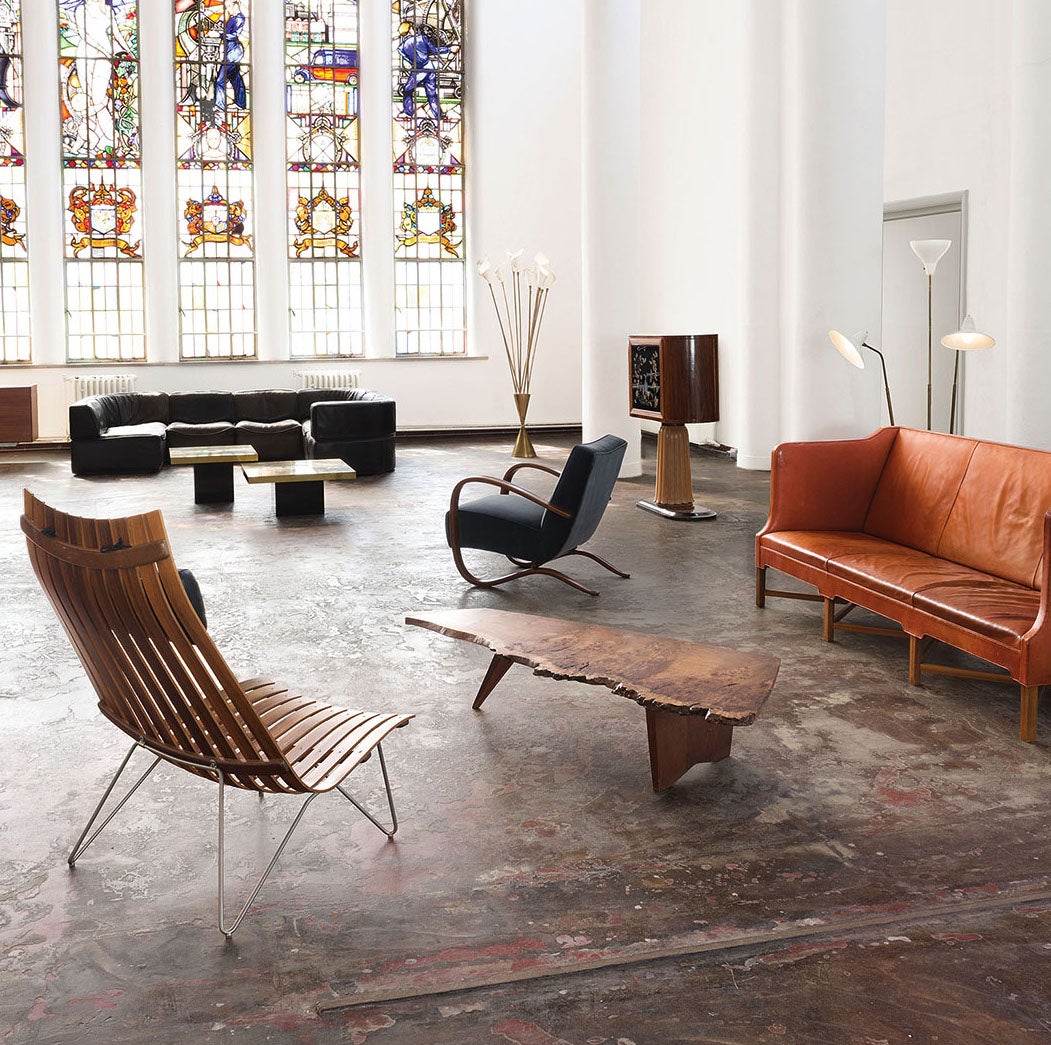
Established in 2006, Morentz has a team of approximately 55 restorers, upholsterers, interior advisers and art historians, making it a gallery, workshop and upholstery studio, all in one. Every day, a carefully selected array of 20th-century furniture arrives from all over the world at the firm’s warehouse, where the team thoroughly examines each piece to determine what, if any, work needs to be done. Whether that means new upholstery or a complete restoration, Morentz's aim is always to honor the designer’s intention while fulfilling the wishes of the client. The team is up to any challenge, from restoring a single piece to its original glory to furnishing a large-scale hotel project.
More From This Seller
View AllVintage 1960s Italian Mid-Century Modern Sofas
Chrome
Vintage 1970s Italian Post-Modern Sofas
Leather, Wood
Vintage 1970s Italian Post-Modern Beds and Bed Frames
Oak
Vintage 1980s Italian Post-Modern Sofas
Fabric
Vintage 1970s Italian Post-Modern Sofas
Leather, Wood
Vintage 1970s Italian Post-Modern Sofas
Leather, Wood
You May Also Like
Vintage 1970s European Mid-Century Modern Sofas
Cotton
Vintage 1970s European Mid-Century Modern Sofas
Cotton
21st Century and Contemporary Italian Modern Sectional Sofas
Aluminum
Vintage 1980s Italian Post-Modern Armchairs
Fabric
Late 20th Century Italian Sofas
Foam
Vintage 1970s European Mid-Century Modern Sofas
Cotton
Recently Viewed
View AllRead More
With Cini Boeri’s Clever 1960s Corner Cabinet, There’s No Need to Choose Sides
The Italian designer’s playful piece offers an elegant storage solution.
John Pawson’s New Jaffa Hotel Brings Contemporary Design to an Ancient Israeli Neighborhood
The architect has imbued the minimalist-chic Tel Aviv stay with his signature style, while at the same time honoring the site's long history.
